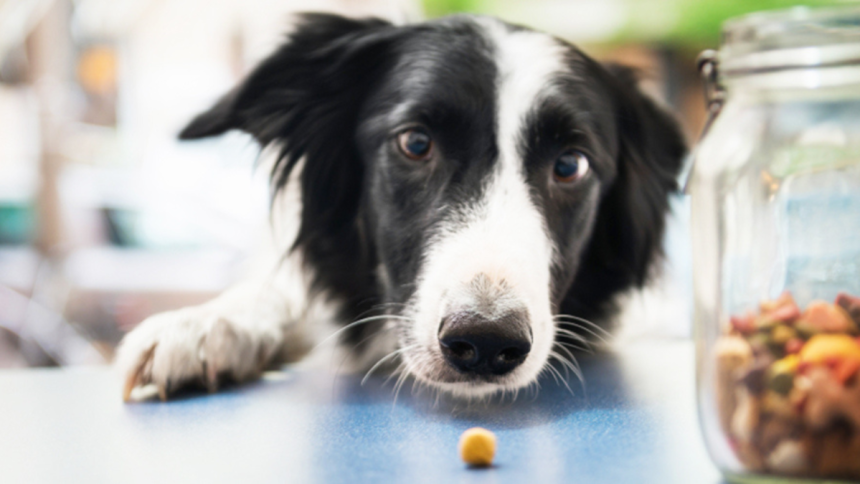The Essentials of Dog Nutrition
If you’re a dedicated fur mom, you already know the joy of keeping your pup by your side through every adventure. But have you considered how much your best friend’s health and happiness depend on nutrition? Nutrition is more than filling a bowl with kibble—it’s about ensuring each bite fuels your dog’s growth, energy, immune response, and emotional well-being. Dogs require a delicate balance of proteins, fats, carbohydrates, vitamins, minerals, and water to maintain everything from playful energy to the sheen of their coat. Unlike humans, dogs can’t supplement their meals with snacks from the fridge or reach for a multivitamin, so every meal is crucial.
These days, fur moms have an incredible variety of dog food options—raw diets, grain-inclusive kibble, freeze-dried formulas, or trending choices like Badlands Ranch dog food. Each type of food comes with its features and benefits. Still, the essentials remain the same: real, high-quality protein for muscle development, healthy fats for shiny fur and brain function, and digestible carbohydrates for fuel. The National Research Council states that dogs also require micronutrients such as zinc, iron, and vitamin D, which can be provided through either natural ingredients or careful supplementation. So, as a loving dog parent, every bag you can choose has a real impact on your pup’s long-term health.
Common Nutrition Myths and Misconceptions
While the world of pet food offers convenience, it’s also filled with conflicting advice and persistent myths. A quick online search or casual conversation at the dog park can reveal strong opinions, especially on topics like grains and raw meals. One commonly held belief is that grains are universally harmful. However, as research shows, only a small percentage of dogs have grain allergies. Most pups digest grains like rice and barley just fine, and these ingredients deliver essential fiber and other nutrients.
Another popular trend is the raw food movement. While some owners report benefits, preparing these meals requires in-depth knowledge to ensure nutritional balance and food safety. An unbalanced raw diet can lead to deficiencies or foodborne illness, putting your dog’s health at risk. The American Kennel Club’s Dog Nutrition provides an excellent breakdown of common misconceptions and highlights why individualized choices—rather than trends—are best for your pet.
Finally, it’s easy to think all commercial pet foods are similar, but recipes and sourcing vary greatly. Look beyond marketing buzzwords and inspect ingredient sources, protein types, and the presence of artificial colors or preservatives. In the end, the most important lesson is not to fall for fads or myths but to focus on what’s genuinely beneficial for your dog based on reliable science.
How Nutrition Supports a Dog’s Wellness
The benefits of proper nutrition become visible soon after making positive changes—many fur moms witness their dogs’ energy and moods soar, their coats soften, and any digestive discomfort diminish. A balanced diet acts as preventative care, fending off problems like obesity, joint pain, or even chronic disease; according to a 2019 study published in the Journal of the American Veterinary Medical Association, dogs that maintain a healthy weight live, on average, almost two years longer than those who are overweight. This statistic speaks volumes: nutrition is a life-extending factor.
Wellness is about more than appearance, though. Dogs with robust diets tend to have clearer eyes, steadier energy, and a happy disposition. From the senior pup who regains pep after a tailored meal plan to young dogs developing strong bones and teeth, nutrition touches every aspect of a dog’s being. Even common issues like itchiness or frequent ear infections can sometimes be remedied with careful dietary adjustments. Proper feeding, over time, sets the foundation for fewer vet visits and a lifetime of energetic companionship.
Recognizing the Signs of Poor Nutrition
Dogs are communicators, even when it comes to their diet. Often, the first signs that something’s amiss show up in subtle ways—a dull coat, recurring dandruff, excessive licking, or persistent gas. Some dogs display lethargy, while others may show weight fluctuations unrelated to their exercise routine. Dental issues, frequent bad breath, or brittle nails can sometimes signal underlying nutritional gaps.
Paying attention to these hints can help dog moms catch problems early. If a healthy, happy pup suddenly becomes irritable or loses its spark, it may be time to evaluate changes in household routines or foods. Regularly check your dog’s hair, skin, teeth, and activity level, and always reach out to your veterinarian if you notice sudden shifts. Together, you can review your pet’s diet and customize a plan that better meets their needs.
Creating a Balanced Feeding Routine for Your Pup
Routine offers security and structure for dogs, making them feel safe and nurtured. When it comes to nutrition, a regular feeding schedule helps avoid everything from begging to bloat. Start by learning to read labels—reliable brands will list named meats (like chicken or salmon) first, not “meat by-products.” Steer clear of foods loaded with unnecessary fillers, artificial dyes, or sweeteners, as these can lead to health issues over time.
- Choose identified protein sources to ensure quality nutrition.
- Limit artificial additives, which can irritate sensitive pups.
- Vary protein options if your dog tolerates them to minimize allergies.
- Weigh or measure food for every meal to prevent over- or under-feeding.
When preparing meals from scratch, research recipes or consult an animal nutritionist to ensure a balanced diet. Introducing new ingredients or changing diets should be done slowly and deliberately to avoid digestive upsets. The more consistency you give, the more you’ll contribute to your dog’s resilience and well-being.
Special Considerations for Aging or Special-Needs Dogs
Just like with people, a dog’s nutritional needs shift over time. Puppies, for instance, require extra calories, calcium, and protein to support rapid growth, while adult dogs thrive when meals are geared for maintenance. Senior dogs may develop joint issues or slower metabolisms, requiring formulas rich in glucosamine or reduced-calorie options to help ward off weight gain.
Some dogs face unique challenges, such as food allergies, sensitive stomachs, or chronic illnesses, which require targeted diets. Instead of one-size-fits-all solutions, rely on research and veterinary advice to craft the right approach. Breed-specific considerations can also play a role: large breeds may need joint support, while small breeds require calorie-dense food due to their faster metabolism. By paying attention, you empower your canine companion to enjoy each life stage in comfort.
Building Healthy Habits for a Lifetime
Maintaining your dog’s health is a daily commitment woven into simple yet powerful routines. Always provide clean water, measure food portions rather than eyeballing, and make gradual changes to avoid tummy troubles. Monitor your dog’s reaction to any new foods, and keep notes if you notice differences in mood, energy, or physical appearance.
Above all, celebrate milestones along the way. Many fur moms find joy in watching their dogs bound with extra enthusiasm after a meal or seeing that glossy shine return to their fur. Balanced nutrition is an ongoing act of care, and each small decision adds up over time. With research, observation, and plenty of love, any dog mom can help her furry family members achieve their healthiest, happiest life.
Lynn Martelli is an editor at Readability. She received her MFA in Creative Writing from Antioch University and has worked as an editor for over 10 years. Lynn has edited a wide variety of books, including fiction, non-fiction, memoirs, and more. In her free time, Lynn enjoys reading, writing, and spending time with her family and friends.















